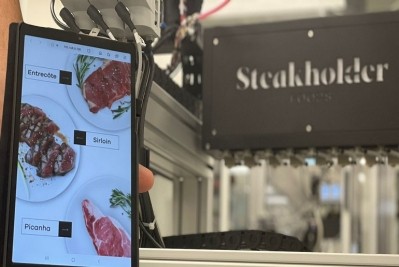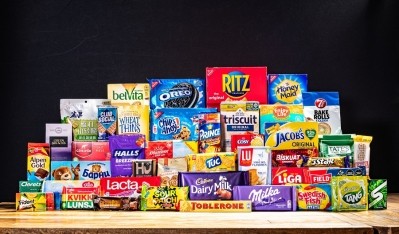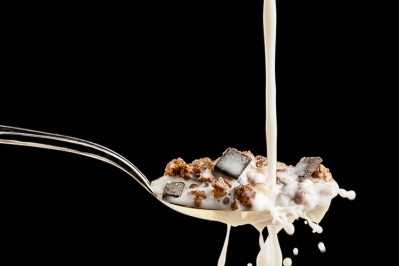Food M&A hindered by ‘persistent macroeconomic headwinds’ but activity on the rise

From 1 January to 30 April 2023, an increase in the volume of mergers and acquisition deals within the UK’s food and beverage sector increased to 33, marking a 17.9% compared to the same period last year.
But deal values continue to be ‘particularly low’, according to Mark Lynch, partner at advisory group Oghma Partners, who suggests inflation, the cost-of-living crisis, and geopolitical tensions are having a combined negative impact.
M&A activity increasing
The UK’s 2023 M&A activity to date is a mixed bag.
In January Finsbury Food Group Plc acquired manufacturer of meringues, teacakes and snowballs Lees Foods, and in March, Leprino Foods Company acquired mozzarella manufacturer Glanbia Cheese in a deal worth at least €178.9m.
A particular focus on sustainable packaging was observed with canned wine producers The Copper Crew and canned coffee producers Bottleshot Brew both being acquired.
There were also multiple deals in the snacking sector, including the acquisition of high protein snack brand Cheesies by savoury snack brand The Curators; and French private label crisps manufacturer Europe Snacks buying out premium snack brand Burts.
Contrary to last year, there were fewer deals in the lifestyle/healthy eating space and far more acquisitions of indulgent producers/suppliers, explained Oghma Partners.
“This year’s opening Tertial has highlighted the resilient and defensive characteristics of the food and beverage M&A sector with T1 deal volume at its highest level since 2017 despite the relentless market challenges,” said Lynch.
But deal value decreasing
Given the high value of the Glanbia Cheese transaction, deal value increased by 60.3%. However, if the Glanbia Cheese transaction is excluded, deal value actually declined.
More than 80% of the deals had an estimated value of £10m (€11.62m) or less, with a ‘significant’ absence of middle to higher market deals during the period: just 6% of transactions were above the £50m mark, falling ‘well below’ the five-year historic average of 12.5%, the advisory firm explained.
Persistent macroeconomic headwinds continue to be a major culprit, according to Lynch: “Inflation remains stubbornly high forcing further interest rate hikes and increasing the cost of debt, a cost-of-living crisis has reduced consumer spending, geopolitical tensions have increased market uncertainty and supply chain issues have piled more pressure on the industry.
“These factors have manufactured a significantly less favourable environment for larger transactions with 81.8% of deals having an estimated enterprise value of less than £10m.”
A surge in distressed M&A activity
This combination of increased deal volume but low deal value can also be explained by a surge in distressed activity: 12.1% of T1 deals were acquisitions out of administration.
According to Oghma Partners’ Lynch, the amalgamation of a challenging macroeconomic climate and a COVID hangover has resulted in food manufacturing insolvencies ‘rocketing’ by 250%.
“This has sparked M&A opportunity: acquirors have been able to snap up distressed assets and benefit from synergies at lower, dislocated prices. Notably, many such deals were in the seafood space with The Big Prawn Co acquired out of administration by Sykes Seafood and Dawnfresh Farming acquired out of administration by Mowi Scotland.”
Another common theme observed in T1 was ‘bolt-on’ acquisitions, whereby corporate and private equity buyers focused their strategy on smaller deals.
“The proportion of UK corporate acquirors augmented by c.10% with many looking to consolidate their market position. Financial buyers declined by c.5% and were glued to a lower price range as they pursued smaller options to bolt-on value to their existing portfolio companies ahead of a potential recovery in value after inflation and interest rates eventually plateau.”
Looking to the future
Oghma Partners is optimistic the market should expect to see a sustained recovery in deal volume.
‘Carve-outs’ (partial divestitures of a business unit) are forecast to be an increasingly common divestment option as larger corporations look to trim their balance sheets amongst the economic uncertainty and to sell underperforming or non-core assets, explained Lynch.
“Moreover, despite the turbulent market conditions, there remains plenty of room for M&A optimism, especially as an increased volume of corporate acquisitions highlights that strategic acquisitions remain a high priority.
“Furthermore, given the greater transparency surrounding genuine financial performance as earnings are no longer distorted by COVID-19 and as inflationary cost pressures abate, this could also lead to greater M&A activity and potentially the reduced use of contingent earnout structures as acquirors have greater confidence and certainty over deals.”








